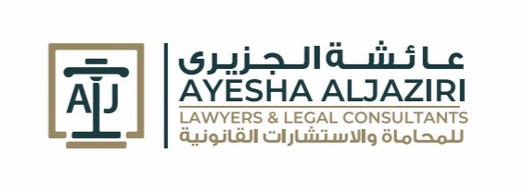Understanding End of Service Benefits (EOSB) under UAE Labour Law is essential for anyone working in the UAE, particularly expatriates planning for a smooth financial transition when employment ends. As a Dubai-based, full-service law firm, Ayesha Aljaziri Lawyers & Legal Consultants advises employers and employees on EOSB compliance and disputes across the UAE. With our full rights of audience before all UAE courts and a multilingual team, we provide trusted, end-to-end legal solutions that align with the latest legislation and best practices.
- EOSB (gratuity) is generally payable to employees who complete at least one year of continuous service; it is calculated on the employee’s basic salary at the end of service.
- For full-time employment in the UAE private sector, gratuity is typically 21 days of basic wage per year for the first five years and 30 days per year thereafter, subject to statutory caps.
- Part-time and alternative work models receive a pro-rata EOSB based on actual working hours; unpaid leave periods are excluded from the calculation.
Legal Framework of UAE Labour Law

The key source of law is Federal Decree-Law No. 33 of 2021 (the UAE Labour Law) and its Executive Regulations (Cabinet Resolution No. 1 of 2022). These instruments govern employment relationships in the UAE private sector (outside specific free zone regimes) and set out the rules for termination, notice, and EOSB entitlements.
Who the Law Applies To
The Labour Law generally covers private-sector employees in the UAE. Government employees and certain free zones (such as DIFC and ADGM) may operate under separate frameworks. For example, DIFC and ADGM operate employer-funded savings schemes rather than the traditional gratuity model. If your contract is governed by a free zone regime, check those rules carefully or speak with our labour and employment lawyers in Dubai for tailored guidance.
Eligibility for End of Service Benefits
To qualify for EOSB under the UAE Labour Law, an employee must generally complete at least one full year of continuous service. Periods of unpaid leave do not count towards the EOSB calculation. Resignation does not, by itself, cancel or reduce gratuity under the current law (the old reductions for resignation under prior legislation no longer apply). However, any outstanding liabilities to the employer may be set off against sums due at termination.
Contract Types and Work Models
All UAE private-sector employment shifted to fixed-term contracts under the current law. EOSB applies to full-time, and proportionally to part-time/alternative work models based on the ratio of actual working hours to full-time hours. Freelance or contractor arrangements that are not genuine employment relationships typically fall outside the gratuity regime, but misclassification is a real risk—if in doubt, seek advice.
Nationals, GCC Citizens, and Expatriates
UAE nationals (and eligible GCC nationals) are generally enrolled in state pension schemes, and different rules apply—EOSB may be replaced by pension contributions under the relevant pension authority. Expatriate employees are not covered by state pensions and typically receive EOSB instead. Multinational employers may offer additional workplace savings plans; these do not usually eliminate statutory EOSB unless a compliant alternative is formally adopted in a jurisdiction that permits it (e.g., certain free zones).
How End of Service Gratuity is Calculated
The EOSB calculation is based on the employee’s last drawn basic salary (excluding allowances, bonuses, commissions, housing, transport, or other benefits). The general full-time formula is:
- First five years: 21 days of basic wage per year of service
- Thereafter: 30 days of basic wage per year of service
Gratuity is capped so that the total amount does not exceed two years’ basic wage. Any fraction of a year is calculated proportionally.
Worked Examples
Example 1 – Three years’ service (full-time): Basic salary AED 8,000. Daily rate (for gratuity purposes) uses a 30-day month: 8,000 ÷ 30 = AED 266.67. Annual gratuity for the first five years is 21 days: 266.67 × 21 = AED 5,600 per year. For three years: 5,600 × 3 = AED 16,800.
Example 2 – Seven years’ service (full-time): Same basic salary AED 8,000. First five years: 5,600 × 5 = AED 28,000. Years 6–7 use 30 days per year: 8,000 ÷ 30 × 30 = AED 8,000 per year → 8,000 × 2 = AED 16,000. Total EOSB = 28,000 + 16,000 = AED 44,000 (well below the statutory cap of 24 months × AED 8,000 = AED 192,000).
Example 3 – Three years and eight months: Use Example 1 for the first three full years (AED 16,800). For the remaining eight months (8/12 of a year), calculate proportionally: AED 5,600 × 8/12 = AED 3,733.33. Total ≈ AED 20,533.33.
What Is and Isn’t Included
- Included: Basic salary at the end of service.
- Excluded: Allowances, bonuses, commissions (unless your contract or policy explicitly incorporates them into “basic” for EOSB), and any unpaid leave periods.
- Set-off: Employers may deduct documented debts or advances lawfully due from the employee.
Common Misunderstandings to Avoid
“Gratuity is always 15 days per year.” Not under the current federal law; the standard full-time private-sector entitlement is 21 days per year for the first five years and 30 days thereafter.
“Resignation means a reduced gratuity.” Under past laws, resignations sometimes reduced EOSB. Under the current regime, resignation does not automatically reduce EOSB, provided the employee has completed at least one year of service.
“Misconduct cancels gratuity.” Termination for misconduct does not automatically forfeit statutory EOSB. The key determinants are completion of one year of service, any lawful deductions, and whether a different legal regime applies (e.g., a free zone savings plan). Serious misconduct may affect other entitlements, but EOSB is generally preserved unless a specific legal basis exists.
Process for Claiming EOSB
On termination, employers should settle EOSB and other dues promptly after the last working day, together with unused annual leave encashment (if any) and any salary balance. Employees should:
- Collect documents: Employment contract, pay slips, end-of-service settlement statement, and any amendments.
- Check calculation: Confirm the basic salary used, the precise service period (excluding unpaid leave), and the correct application of 21/30-day bands.
- Confirm deductions: Review any set-offs (e.g., loans), notice pay, and leave encashment for accuracy.
- Escalate if needed: If you cannot resolve a dispute internally, you may file a complaint with the Ministry of Human Resources & Emiratisation (MoHRE) or seek legal support from our experienced litigation lawyers in Dubai or arbitration lawyers in Dubai, depending on your contract and dispute resolution clause.
Disputes, Free Zones, and Special Regimes
Disagreements often arise over what constitutes “basic salary,” whether commissions should be included, breaks in continuous service, or whether a free zone’s savings plan applies. DIFC and ADGM employers commonly contribute to qualified savings schemes (e.g., DEWS-style plans), which replaces traditional gratuity under those regimes. If your contract references a free zone law, check the governing rules and plan documents carefully.
When a dispute escalates, our team can review the employment file, evaluate the applicable regime, calculate the lawful EOSB, and represent you before mediation bodies and courts. Because we have full rights of audience before all UAE courts, we manage the matter end-to-end without the need for external counsel.
Frequently Asked Questions
What exactly are End of Service Benefits?
EOSB (gratuity) is a lump-sum amount payable to eligible employees at the end of their employment. It rewards length of service and is calculated on the final basic salary, subject to the 21/30-day bands and statutory caps.
Do part-time employees receive EOSB?
Yes, but proportionally. The entitlement is calculated based on the ratio of actual working hours to full-time hours, applied to the standard EOSB framework.
Are allowances or bonuses included?
Not typically. EOSB is calculated on basic salary only, unless your employment contract explicitly states otherwise. Allowances (housing, transport, etc.) and bonuses are usually excluded.
Is there a minimum service period?
Yes. You must complete at least one year of continuous service to qualify for EOSB. Fractions of the final year after the first year are paid pro-rata.
How fast must EOSB be paid after termination?
Employers should settle dues promptly on or shortly after the last working day, together with any other amounts lawfully owed. Delays can give rise to disputes and potential penalties.
What if my employment is in DIFC or ADGM?
Those financial free zones have separate rules. Employers generally make contributions to a qualifying savings plan, and traditional gratuity does not apply. Review your contract and scheme documents, or speak with our team for a precise assessment.
Why Engage Ayesha Aljaziri Lawyers & Legal Consultants?
We are a premier, full-service law firm in Dubai advising both employers and employees on the full spectrum of labour and employment matters—from compliant contracts and policies to complex settlement negotiations and disputes. Our multilingual lawyers deliver trusted legal solutions across 14 practice areas, and our full rights of audience ensure seamless advocacy before civil, Sharia, commercial, and appellate courts across the UAE.
Explore more insights on our legal insights blog, or speak directly to our labour lawyers in Dubai for bespoke advice on your EOSB entitlements or obligations.
Talk to Us
If you need an accurate gratuity calculation, guidance on a free zone regime, or representation in a dispute, our team can help. Contact us for a confidential consultation.








